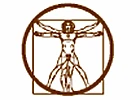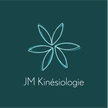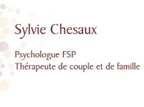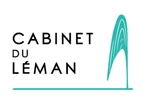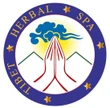Institut & Ecole de Kinésiologie & Géobiologie AS - Kinémotion, Agréé ASCADepuis 2010, nous accompagnons adultes, ados et enfants à Champagne (1424) , à 2 minutes de l’arrêt de bus et de la sortie d’autoroute Grandson/Champagne. Nous réunissons consultations individuelles et formations certifiantes pour retrouver équilibre, vitalité et clarté. institut-kinesiologie.ch L’institut (séances individuelles) Séances de kinésiologie visant à dénouer stress, blocages émotionnels, troubles du sommeil, douleurs fonctionnelles, difficultés d’apprentissage, préparation aux examens, etc. Notre approche s’appuie sur le test musculaire de précision et sur des méthodes éprouvées (TFH – Touch for Health , Kinésiologie Kinémotion®). Les séances complètent le suivi médical sans s’y substituer. Le Touch for Health (TFH), méthode de départ d'autres kinésiologies spécialisées utilisant le test musculaire pour accéder au langage du corps. Les moyens de ré‑équilibration utilisés viennent de la médecine chinoise, de la chiropractie et du KE (Kinémotion ® – Méthode Kinésiologie Essentielle pour tous). institut-kinesiologie.ch L’école (formations & cursus) Nous formons à la kinésiologie de base et avancée : • TFH – La Santé par le Toucher (T1 à T6) , fondation de la discipline ; • Kinésiologie Kinémotion® (KE) avec modules progressifs ; • Ateliers pratiques / supervisions pour une mise en situation réelle ; • Aucun prérequis pour débuter (motivation et curiosité suffisent) ; • Rythme moyen : env. 1×/mois • Paiement flexible, cours par cours ; • École accréditée ASCA . Consulte les prochaines dates et inscriptions en ligne sur notre site. institut-kinesiologie.ch Géobiologie de l’habitat (séances & cours) Nous intervenons pour harmoniser les lieux de vie et de travail (failles, réseaux, électrosmog, mémoire des lieux), afin d’améliorer sommeil, récupération et bien‑être. Des cours de géobiologie – théoriques & pratiques – sont également proposés, sans prérequis . Programme détaillé disponible sur notre site. institut-kinesiologie.ch Pour qui ? Toute personne souhaitant mieux gérer stress et émotions, soutenir la concentration et l’apprentissage, favoriser l’énergie au quotidien, ou approfondir une voie professionnelle en kinésiologie / géobiologie. Où nous trouver / accès Institut & École de Kinésiologie AS – Chemin de Praz 23, 1424 Champagne (VD). Parking et accès aisés ; prise de rendez‑vous et calendrier des cours en ligne. Notre engagement Une pédagogie claire, des méthodes structurées et un accompagnement bienveillant, pour apprendre et recevoir la kinésiologie au même endroit, en toute confiance. Régions proches : Agiez, Arnex‑sur‑Orbe, Baulmes, Belmont‑sur‑Yverdon, Bofflens, Bonvillars, Bullet, Champvent, Chavornay, Cheseaux‑Noréaz, Concise, Ependes (VD), Essert‑Pittet, Estavayer‑le‑Lac, Fiez, Fontaines‑sur‑Grandson, Fontanezier, Fribourg, Giez, Gorgier (NE), Grandson, Gressy, Lausanne, Mathod, Mauborget, Montagny‑près‑Yverdon, Neuchâtel, Novalles, Onnens (VD), Orbe, Pomy, Provence, Rances, Romairon, Sainte‑Croix, Saint‑Aubin‑Sauges (NE), Suchy, Suscévaz, Treycovagnes, Valeyres‑sous‑Montagny, Vaumarcus (NE), Villars‑Burquin, Villars‑Epeney, Vugelles‑La Mothe, Vuiteboeuf, Yverdon‑les‑Bains, Yvonand.


